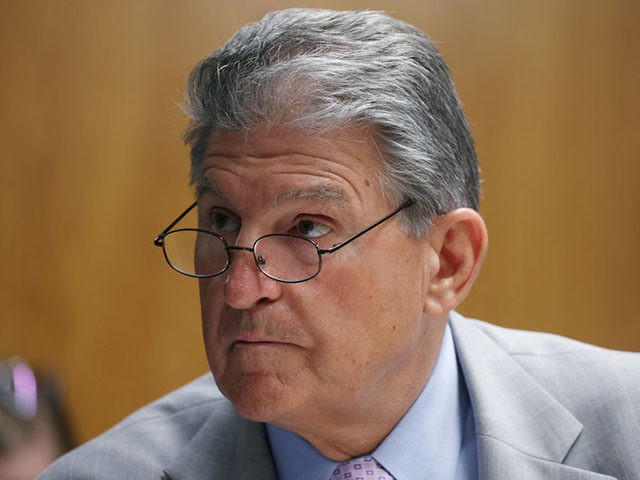Most Democrat senators have kept quiet about their stance on President Joe Biden’s controversial nominee to lead the Bureau of Land Management (BLM), Tracy Stone-Manning, who is linked to a past ecoterrorist plot.
Moderate Democrats like Sens. Joe Manchin (D-WV) and Kyrsten Sinema (D-AZ) have stayed silent on her nomination, as have several Democrats from states most impacted by the BLM and states with large logging communities, which were targeted by ecoterrorist groups in the 1980s and 1990s.
Stone-Manning was a member of one such group called Earth First! when she was a graduate student at the University of Montana in Missoula. In 1989, Stone-Manning mailed a letter to the U.S. Forest Service on behalf of John P. Blount, an individual in her “circle of friends,” crudely warning federal authorities that trees in Idaho’s Clearwater National Forest that were scheduled to be cut down had been sabotaged with metal spikes to prevent them from being harvested. Tree spiking, as this form of sabotage is called, is both a crime and, according to the FBI’s definition, an act of ecoterrorism that can be fatal to loggers or millworkers processing the spiked trees.
After the Forest Service received the warning letter, Stone-Manning and six other individuals in Missoula were the target of a 1989 grand jury investigation for which they were subpoenaed and required to submit finger prints and hair samples. However, the 1989 grand jury did not uncover enough evidence to charge Blount or anyone else with the crime. The case was not solved until Blount’s ex-girlfriend reported him to authorities two years later, and in doing so, also named Stone-Manning as the person who mailed the letter for him. In exchange for immunity, Stone-Manning testified in the 1993 trial against Blount, who was convicted for the tree spiking crime and sentenced to 17 months in prison.
Former BLM Acting Director William Perry Pendley references interviews in which Stone-Manning admits she did not come forward about her knowledge of Blount’s 1989 tree spiking until her 1993 testimony. Stone-Manning later filled out a questionnaire for her Senate confirmation hearing with inaccuracies related to the tree spiking case.
Tree spiking, as Pendley explains, “is truly an act of terror because it is meant to bring fear into the hearts of loggers and millworkers.”
Stone-Manning, should she be confirmed, would lead the bureau in charge of more than 275 million acres of public land, which includes expansive forests ripe for timber harvesting.
In Washington and Oregon, the BLM oversees a combined 16 million acres of public land. From fiscal years 2015 to 2019, the two states together produced the greatest average annual timber harvest from BLM land, as well as from U.S. Forest Service land, compared to any other state.
Sen. Maria Cantwell (D-WA), who sits on the Energy and Natural Resources Committee — the committee responsible for voting on Stone-Manning ahead of a full Senate vote — did not respond to multiple requests for comment about her stance on the nominee, nor did fellow Sen. Patty Murray (D-WA).
In addition to BLM’s wide influence in Oregon, the state also has the country’s highest concentration of fallers, a job requiring axes or saws to strategically fell trees. Its two senators, Sens. Ron Wyden (D-OR) and Jeff Merkely (D-OR), have not responded to multiple requests for comment on if they support Stone-Manning’s nomination.
Arizona, where BLM manages more than 12 million acres of land, is also represented by two Democrat senators, Sinema and Sen. Mark Kelly (D-AZ), neither of whom have commented on Stone-Manning’s nomination.
Georgia’s vast private forests, although not under BLM’s purview, make the state one of the top in the country for the logging industry. Neither Democrat senator there has replied to requests for comment about their stance on Stone-Manning, while a major logging association representing hundreds of logging businesses has recently come out against her nomination. Sen. Raphael Warnock’s (D-GA) position will be of particular interest to Georgia voters as he is up for reelection next year and considered vulnerable in his battleground race for reelection.
Maine, the most forested state in the country, has the highest concentration of logging equipment operators. Sen. Angus King (I-ME), who typically votes with Democrats, said he is “still reviewing” Stone-Manning’s nomination, while Sen. Susan Collins (R-ME), a moderate voter within her caucus, has not publicly stated her position.
In Montana, another state heavily tied to the BLM, Sen. Jon Tester (D-MT) has been an outlier in advocating for Stone-Manning, who was a former staffer of his.
“Montanans know there’s no better person for a job like the BLM position than a fellow Montanan,” Tester said at her hearing. He added she is “well-versed in everything from oil and gas permitting to outdoor recreation and land conservation, and she understands the essential role public lands play in our country.”
On the other side of the aisle, numerous Senate Republicans have been urging Stone-Manning to withdraw, including Energy Committee ranking member Sen. John Barrasso (R-WY), who observed in a scathing statement that she was “part of a cover up” and “lied” to the Senate about it.
Because the Senate is split 50–50 by party, opposition to Stone-Manning from all 50 Republicans and just one Democrat would sink Stone-Manning’s nomination if it comes up for a full vote.
Write to Ashley Oliver at aoliver@breitbart.com.

COMMENTS
Please let us know if you're having issues with commenting.